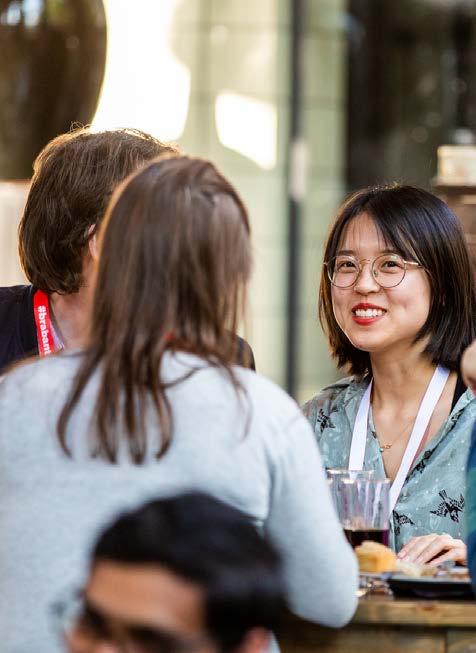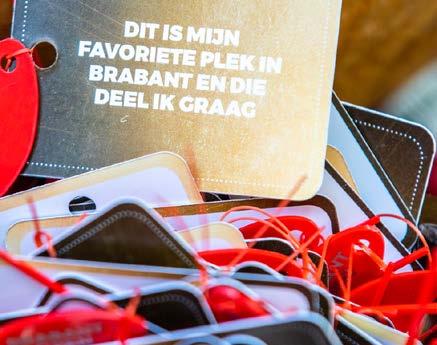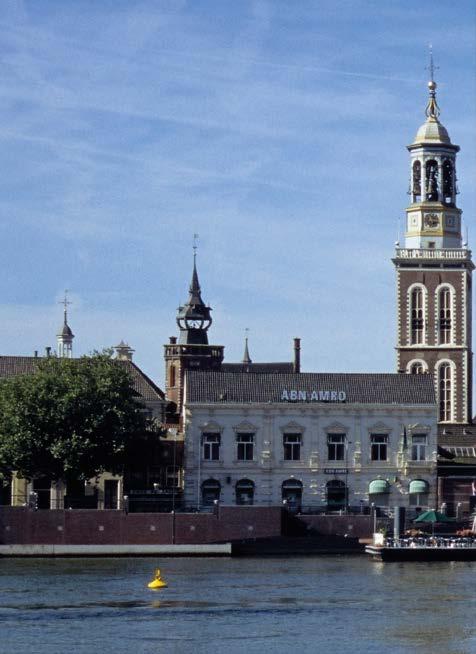
8 minute read
Introduction to The Netherlands
History of The Netherlands
The land that now forms the Netherlands has been inhabited for about 100.000 years. However, the country’s recorded history really began around 57 BC with the Roman conquest, led by Julius Caesar. During that time, the Romans built the first military forts and cities, and introduced writing. Following the decline of the Roman Empire, the Netherlands became part of the Holy Roman Empire.
1000 BC - Local farmers began to drain and cultivate the land. Higher productivity allowed workers to become tradesmen. Markets developed, towns and cities grew rapidly, and a new mercantile middle class arose.
1000 BC 1400 1500
16th Century - The Netherlands
became a possession of the Habsburg dynasty.
1548 - The Hapsburg ruler, Charles V, granted the Seventeen Provinces of the Netherlands nominal independent status.
1568 - Charles’ son Philip II of Spain, a devout Catholic, was appalled by the success of the Reformation in the region and the rise of Calvinism. He passed a sentence condemning all 3 million inhabitants of the Netherlands to death as heretics, which prompted a revolt.
1579 - Led by William of Orange, the Dutch declared full independence from Spain and formed the ‘United Provinces’. The Spanish lost control of the Netherlands after 20 years, but the war lasted another 60 years.
1430-1433 - Duke Philip the Good of Burgundy reunited the republics, which is considered the moment when the Dutch became a nation. The region’s trade developed rapidly, especially in the areas of shipping and transport.
17th Century - The Golden Age
The nation flourished, but a slow decline set in following full independence.
1648 - A peace treaty of Westphalia confirmed the independence of the United Provinces. The country became known overseas as ’Holland’, and became an important trading centre in Northern Europe, and founded colonies around the world. 1806 - Napoleon restyled the Netherlands into the Kingdom of Holland, with his brother Louis as king. He quickly annexed the fledgling nation into the French Empire when Louis began to put Dutch interests ahead of those of France.
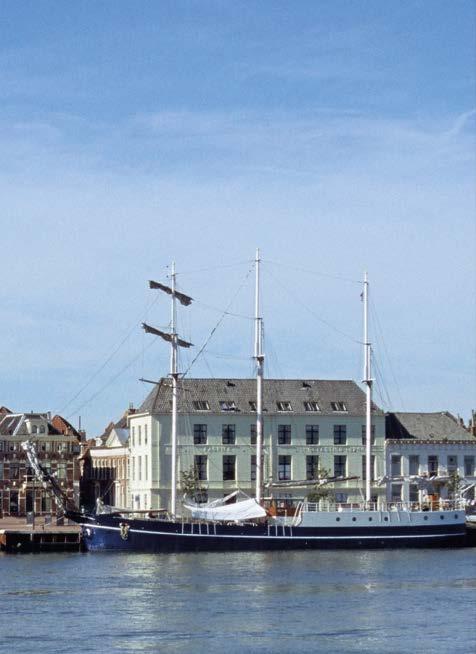
1815 - Following the defeat of Napoleon, the country became an independent monarchy, once again. This ‘United Kingdom of the Netherlands’ originally consisted of what is now the Netherlands and Belgium.
1830 - The Belgians declared independence from the North.
1848 - Unrest across Europe prompted King William II to agree to democratic reform, and the Netherlands became a constitutional monarchy.
1600 1700 1800
1795 - Napoleon Bonaparte occupied the country and encountered little resistance from a nation that largely supported his republican ideals.
1914 - The Netherlands remained neutral when World War I broke out.
1939 - The country declared its neutrality again at the outbreak of World War II.
May 1940 - Nazi Germany invaded the country and remained for 5 years.
5 May 1945 - The country was liberated. 1950-60 - The Dutch economy expanded rapidly and immigration was encouraged, first from Italy and Spain, and then from Turkey and Morocco. Combined with immigration from former colonies (Indonesia, Surinam and Netherlands Antilles), the Netherlands became the multicultural society it is today.
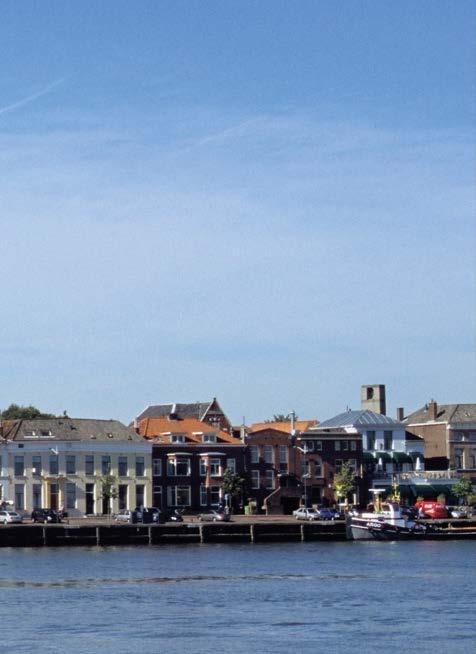
1960-70 - Class and religious divisions began to break down. The Netherlands was a founding member of both the European Union (EU) and the North Atlantic Treaty Organization (NATO).
1999 - The Dutch participated in the introduction of the Euro.
2001 - The world’s first samesex marriage takes place in Amsterdam.
2002 - The Euro replaces the Dutch guilder; regulated euthanasia is legalised 30 April 2013 - Prince WillemAlexander appointed as the King, having ascended the throne following his mother's abdication, Queen Beatrix. At the time of her abdication at age 75, Beatrix was the oldest reigning monarch in the country's history.
1900 1950 2000

GOVERNMENT
● The Netherlands is a constitutional monarchy: the position of the monarch is laid down in the Constitution. ● King Willem-Alexander is the Dutch head of state and, together with the ministers, makes up the government. ● Equal rights for everyone are guaranteed by law, and egalitarianism forms a central belief of Dutch society. ● The ministers make up the Cabinet, which is chaired by the
Prime Minister. ● The Council of State is the Netherlands’ oldest High Council of State. Founded by Emperor Charles V in 1531, it is still the government’s chief advisory body. ● All Dutch nationals older than 18 may vote and stand in elections for the House of Representatives. ● Parliament (the States General) consists of two chambers: the Senate (the upper house, with 75 members) is elected by the provincial councils) and the House of Representatives (the lower house, with 150 members). ● All Acts of Parliament have to be passed by both houses of parliament. ● The Netherlands has many political parties, which is encouraged by the electoral system. ● The House of Parliament is elected by proportional representation.
● Encounters: Virtually everyone shakes hands in the Netherlands, both upon greeting and upon departure. In informal situations (with friends or relatives) women and men may also exchange three kisses, on alternating cheeks. Men only exchange three kisses with women; not with men. ● Flowers: Dutch homes are often full of house plants, and flowers are frequently given as gifts when visiting friends or relatives. ● Communication: Many foreigners can find the Dutch direct and abrupt. However, there is no intention to be rude. The Dutch say what they mean and speak their minds! ● Meetings: Dutch society puts great emphasis on the need for people at all levels to have their say in decision-making processes, and on finding consensus. This can slow the decision-making process, but ensures that everyone’s view is heard. ● Punctuality: It is important to be punctual. Call if you are delayed, and avoid canceling meetings at the last minute. Don’t forget that meetings usually adhere to a strict agenda, and finish at an appointed time. ● Dress code: In sectors such as banking and law, the dress code is formal and traditional. But in many other industries it is casual. The focus in the Netherlands is on content rather than form. ● Work-life balance: Dutch people value their personal time. Business lunches are preferred over dinners. If you want to motivate Dutch workers, time off works better than money! ● Dinner: It is common to bring a bottle of wine and flowers if you visit someone for dinner. The bottle is very often put to one side and will be enjoyed on another occasion. ● Telephoning: People say their name right away on the phone (usually both first and last name), at work and at home, both when answering and calling. ● Common expressions: ‘Gezellig!’ is a bonding expression used in social situations, which translates loosely to ‘Isn’t this nice?’ ‘Doe Normaal!’ is an expression, which means ‘Just behave normally,’ and has a strong resonance. This warning keeps kids and adults alike in check, and prevents them from stepping out of line and being too outrageous!
- Kacper Sawicz, Poland -
Why did you choose to study in Brabant? "When I found the Bachelor of Data Science on Tilburg and Eindhoven University ( a joint degree) I was very excited. Tilburg University and the Technical University of Eindhoven provided me with a unique opportunity to combine social and technical skills. The number of interesting electives is huge, we can learn econometrics and entrepreneurial techniques in Tilburg or algorithms, statistics, databases and mathematics in Eindhoven while paying only one university fee. Both universities are also high in rankings, Eindhoven is in top 100 of world universities in general and Tilburg is top 20 economy university in the world."
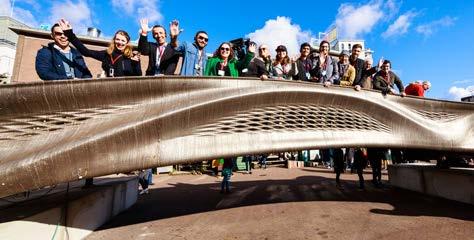
What do you like about the group projects? "This well-executed group project teaches you far more than a standard course. After you graduate, you will feel more comfortable and self-confident when you will transition into the workplace."
How do you like living in Brabant? "I enjoy it more every year. The people here have a general kindness to them. They are also not afraid to have fun."
What do you think about the study culture in the Netherlands? "A close relationship with my teachers helps me to ask questions during the lectures and sending them numerous questions about their subject."
What advice do you have for other international students? "A first visit to the Netherlands if you can. At Tilburg University there are ‘open days’ and ‘student for a day’- events several times a year. Or you can always contact one of the student ambassadors, who will give you a personal tour and answer all of the questions that you have in mind."
Connecting the international office
When you have any questions concerning formalities connected to studying in Brabant, please contact the international office of your university.
Eindhoven University of Technology
The service Education and Student Affairs (ESA) is the central point at TU/e where you receive a variety of services in the field of education.
www.tue.nl/en/our-university/about-the-university/ support-services/education-and-student-affairs/
Tilburg University
Find information on study and university life related matters on twe website.
www.tilburguniversity.edu/students
Avans University of Applied Sciences
For questions in relation to studying at Avans University of Applied Sciences contact Student T +31 (0)88 525 7550
www.avans.nl/international/about-avans/contact
Fontys University of Applied Sciences
Here you can find all kinds of practical information for your stay in the Netherlands and the support Fontys can offer you.
fontys.edu/Study-at-Fontys/Living-in-theNetherlands.htm
